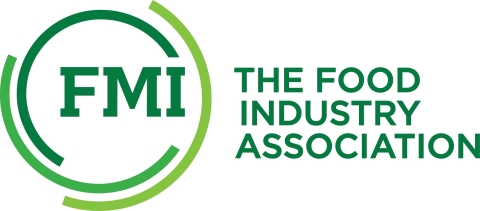New FMI Survey Finds U.S. Food Industry is Investing Heavily in Customer Experience Amid Economic Volatility
New FMI Survey Finds U.S. Food Industry is Investing Heavily in Customer Experience Amid Economic Volatility
Food retailers pursue strategic differentiation strategies as inflationary pressures increase costs and impact consumer shopping behaviors
FMI’s 74th annual The Food Retailing Industry Speaks report provides the food industry with important operational and financial benchmarks, as well as insights into strategic and tactical decisions. This year’s report surveys both retailers and suppliers and outlines several challenges that have turned food industry operations into an obstacle course.
ARLINGTON, Va.--(BUSINESS WIRE)--Despite a challenging year marked by a persisting pandemic, historic inflation, supply chain bottlenecks, and labor shortages, the food industry is making significant investments to meet shoppers’ evolving tastes, according to FMI—The Food Industry Association’s annual comprehensive research report, The Food Retailing Industry Speaks 2022.
The survey finds that food retailers are focusing on investments in new technologies (73%) like foodservice ordering and delivery, dynamic pricing, and mobile checkout systems. They are also increasing labor allocation for online purchase fulfillment (52%) and in-store/curbside pick-up (48%).
Retailers report they are also expanding numerous fresh or perimeter departments. More than 80% are increasing the space they allocate to fresh-prepared grab-and-go products as well as offering foods with beneficial nutrition attributes for health and well-being (70%). The departments expected to grow include locally sourced (72%) and organic produce (62%), plant-based foods and animal protein alternatives (64%), allergen-free (38%) and gluten-free (35%) SKUs.
“A major trend that has emerged from the pandemic is shoppers are looking for fresher, healthier, more convenient options at their grocery store,” said Leslie Sarasin, president and CEO of FMI—The Food Industry Association. “Food retailers have absorbed this feedback and are making great strides to create both online and in-person shopping destinations that cater to shoppers’ evolving tastes.”
Despite the macroeconomic challenges, a majority of retailers (61%) pointed to a positive impact on business sales and profits in 2021 from local and national economies. On the other hand, food suppliers – surveyed for the first time in the 74-year history of the Speaks report – were less upbeat (50% positive, 36% negative). Both retailers and suppliers agree that the current economic climate will not be as favorable, with both retailers and suppliers anticipating that inflation will cause operating costs to increase (78% retailers, 90% suppliers).
“While inflation is a cause for concern for the food industry, it is much more concerning for American families who work hard to put food on their tables,” said Sarasin. “The food industry is committed to addressing these challenges so we can support families in the communities in which we operate by providing access to healthy and affordable foods.”
For more information and to download the report, visit www.FMI.org/GrocerySpeaks.
About FMI
As the food industry association, FMI works with and on behalf of the entire industry to advance a safer, healthier and more efficient consumer food supply chain. www.FMI.org
Contacts
Media: Heather Garlich, media@fmi.org

